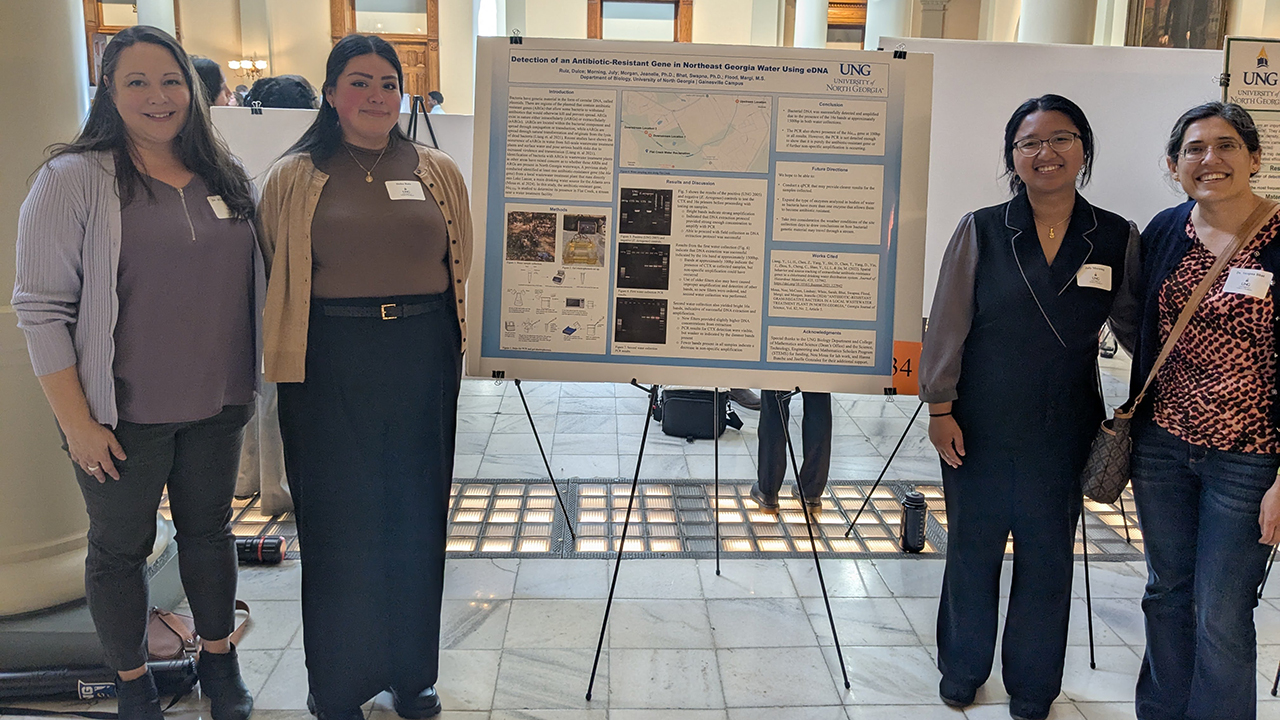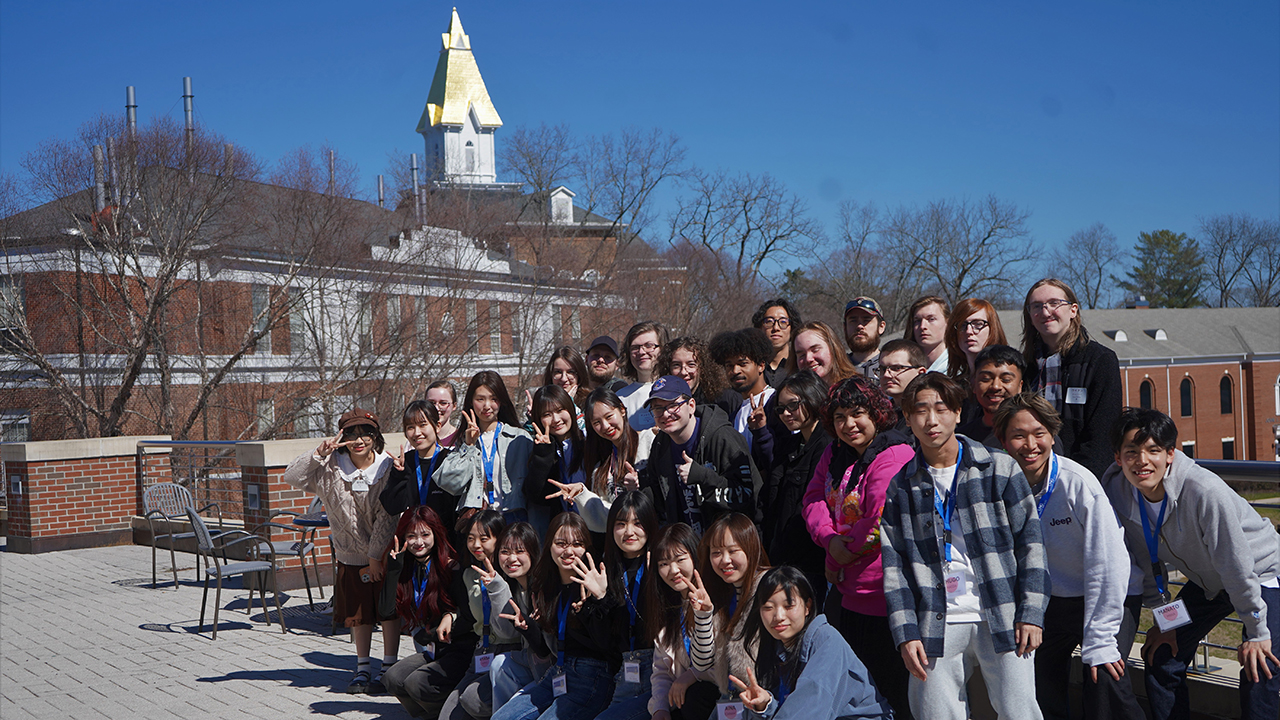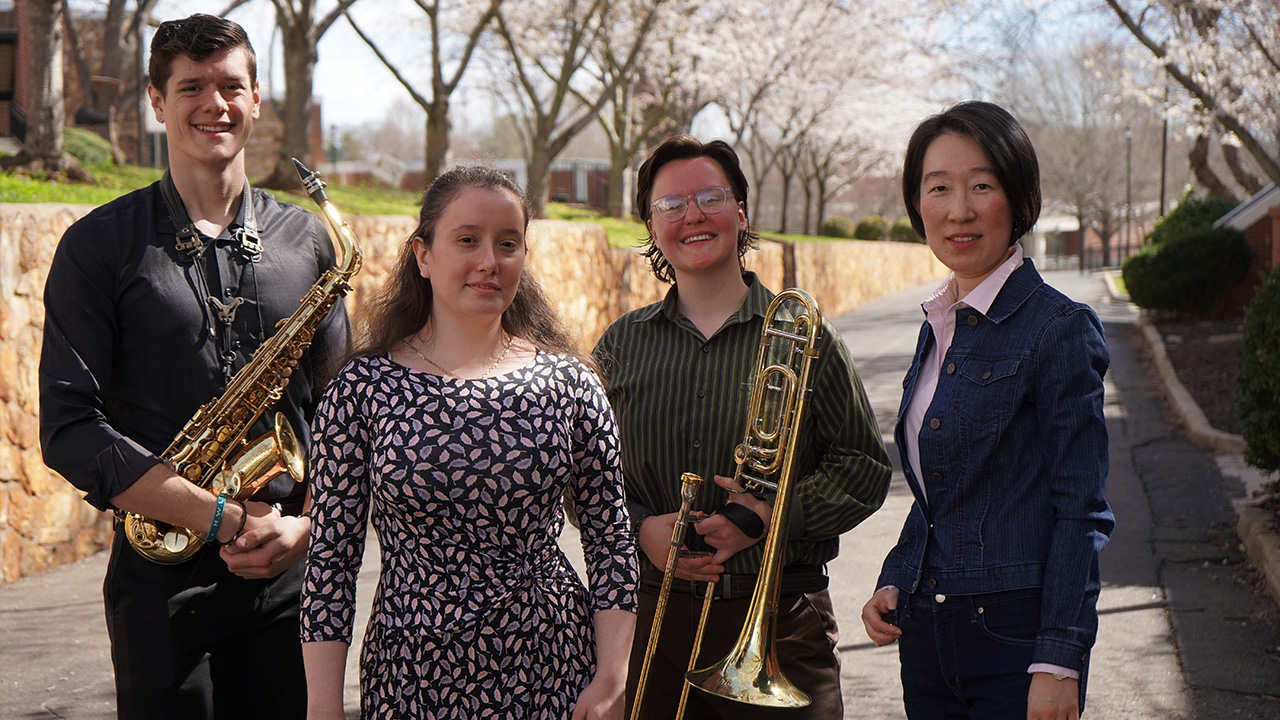Two UNG students research the power of groups

Article By: Staff
Do groups have better collective memories than individuals when it comes to problem-solving? Two University of North Georgia (UNG) students are running a series of experiments to find out.
Junior psychology majors Jacob Henze and Laura Rodes are preparing to test collective problem solving versus individual problem solving using a box of sand. The purpose of their research is to better understand how people utilized maps to solve real-world problems and determine the best route to take to reach a destination.
Henze and Rodes want to test a premise that participants, either individually or in groups, are able to find locations and interact better using three-dimensional maps than with a conventional two-dimensional maps. That's where the box of sand comes in.
They started the project in June 2017 by researching similar projects through a literature review. Previous research indicated participants were better able to navigate a route in a group setting, with the ideal group at three or four members. Another study showed participants were able to plot a shorter route quicker and more accurately using a three-dimensional topographical map than a two-dimensional map. Henze and Rodes combined the two experiments into one.
Dr. Bryan Dawson, associate professor of psychology at UNG and faculty advisor of the project, said Henze and Rodes first conceived of the experiment as an extracurricular activity, but are now moving forward with it as part of an independent study project.
“Jacob and Laura have worked quite hard to develop their methodology, pouring extensively through the literature to make it all come together," said Dawson. "Their dedication to the project, taking it on first as an extracurricular activity, then as a research project, is a testament to their drive and focus in seeing the project through. I admire their tenacity and their desire to see this project bear fruit."
Using a computer with a mapping program and a projector mounted above the sand, the two students mold an area with hills, contours, ridges, and lakes in the sand, and a topographical map overlay appears on the sand and computer screen.
"The hardest part of this experiment so far has been setting it up," said Henze, a 21-year-old from Cumming, Georgia. "It's been a long, drawn-out process getting all the components aligned and working."
Undergraduate students from the UNG research database will participate in the study by being randomly assigned to either a group or as an individual test participant. Participants will be asked to look at either the two-dimensional or three-dimensional map and estimate the shortest and fastest route to take between two points, with the participants being timed in solving the problem.
Henze and Rodes want to see if groups would be more accurate at correctly solving problems than individuals due to the fact that groups can work together and express different ideas. They also want to see if using a three-dimensional map will help the participants chart a shorter and quicker route between two points. Groups bear advantages such as collaboration and the ability to verbally discuss the advantages and disadvantages of determining which route to travel compared to an individual.
"It looks crazy, but it makes sense once the participants are told what to do," Rodes, a 20-year-old from Peachtree City, Georgia, said. "We can't wait to start the experiment, to see what the subjects will do."
The students will present their findings at the Southeastern Psychological Association's 64th annual meeting March 6-9 in Charleston, South Carolina.



